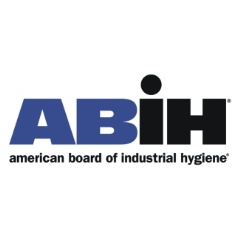Protecting Workers and the Public from Exposure to the Zika Virus
The American Board of Industrial Hygiene® (ABIH®) reminds workers and industry of the need to educate people about preventing Zika infections.
Many workers and even soldiers who spend a significant portion of their time outdoors in areas known to have, or are believed to have, infected mosquitoes could also be at risk.
Earlier this month, the Centers for Disease Control and Prevention (CDC) issued travel guidance that recommends pregnant women avoid travel to a neighborhood in Miami where several Zika infections were recently confirmed and the agency found persistent mosquito populations. The unprecedented travel warning for an infectious disease in a neighborhood in the United States highlights the seriousness with which health officials are working to protect the public. Globally, fears of the Zika virus have made headlines for months as some top athletes decided to not participate in the Olympics in Brazil for fear of exposure.
Currently, there is no vaccine for Zika. The CDC reports that the virus is spread mostly by the bite of an infected Aedes species mosquito (Ae. aegypti and Ae. albopictus). These mosquitoes are aggressive daytime biters, but can also bite at night. The virus can be passed from a pregnant woman to her fetus and infection during pregnancy can cause birth defects.
According to the CDC, many people infected with the Zika virus won’t have symptoms or will only have mild symptoms. The most common symptoms include fever, rash, joint pain and conjunctivitis. Other symptoms may include muscle pain and headache. These can last for several days to a week and many people don’t get sick enough to require hospitalization.
“It’s not just the general public and Olympic athletes who need to be educated and protected from the Zika virus,” said Susan Ripple, CIH® and Chair of ABIH®. “Many workers and even soldiers who spend a significant portion of their time outdoors in areas known to have, or are believed to have, infected mosquitoes could also be at risk. Employers have a responsibility to educate their workers about protecting themselves. This should include minimizing workplace exposures; recognizing signs of infection and seeking treatment promptly; personal protective measures that may include repellants and proper clothing in places where workers may encounter mosquitoes.”
Certified Industrial Hygienists are uniquely qualified to help with these efforts. CIHs are trained in biohazards, health risk analysis, hazard communication, work environments and personal protective equipment. These and other core competencies of the CIH® program are instrumental for helping to prevent Zika and other mosquito-borne diseases and protecting the health of workers and the public.
To learn more about the American Board of Industrial Hygiene®, Certified Industrial Hygienist® credential or to locate a CIH® to perform industrial hygiene services, please visit www.ABIH.org, email abih@ABIH.org or call (517) 321-2638.
About the American Board of Industrial Hygiene ®
Since 1960, ABIH®, a not-for-profit corporation, has been the world’s largest organization for certifying professionals in the practice of industrial hygiene. ABIH® is the premier credentialing body responsible for ensuring high-quality certification including education, experience, examination, certification maintenance and ethics enforcement. Currently, more than 6800 people in 32 countries are certified to use the CIH® designation.
( Press Release Image: https://photos.webwire.com/prmedia/12710/204721/204721-1.jpg )
WebWireID204721
- Contact Information
- Paul Cochrane
- President
- Cochrane & Associates, LLC
- Contact via E-mail
This news content may be integrated into any legitimate news gathering and publishing effort. Linking is permitted.
News Release Distribution and Press Release Distribution Services Provided by WebWire.
